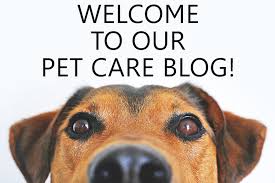One of the most critical aspects of pet care is proper nutrition. Just like humans, pets need a balanced diet to thrive. Here are some key points to consider:

Choose the Right Food: Consult your veterinarian to determine the best type of food for your pet’s breed, age, and health condition. High-quality commercial pet foods are typically formulated to meet these needs, but some pets may benefit from a specialized diet.
Portion Control: Overfeeding can lead to obesity, which is a common issue among pets. Follow the feeding guidelines on the pet food packaging, and adjust portions according to your pet’s activity level.
Fresh Water: Always provide fresh, clean water for your pets. Dehydration can lead to serious health problems, so ensure their water bowl is always filled.

Regular Exercise: Keep Them Active
Physical activity is vital for your pet’s physical and mental health. Regular exercise helps prevent obesity, strengthens muscles, and can alleviate behavioral issues such as anxiety and destructive tendencies.
Daily Walks: For dogs, daily walks are essential. Depending on the breed, your dog may require one or more walks per day.
Playtime: Engage in playtime with your pets. Toys that stimulate their natural instincts, such as fetch for dogs or laser pointers for cats, are excellent ways to keep them active.
Interactive Activities: Consider agility training or pet sports to challenge your pet mentally and physically.

Grooming: More Than Just Looking Good
Regular grooming is not just about keeping your pet looking good; it’s crucial for their health and comfort.

Brushing: Regular brushing removes loose fur, prevents matting, and reduces shedding. It also gives you a chance to check for any unusual bumps, ticks, or skin issues.
Bathing: Depending on the breed and lifestyle, pets may need regular baths. Use pet-friendly shampoos to avoid skin irritation.
Nail Trimming: Overgrown nails can cause discomfort and lead to injury. Keep your pet’s nails trimmed, but be careful not to cut too close to the quick.
Veterinary Care: Regular Check-ups Are a Must
Routine veterinary visits are essential for early detection of health issues and maintaining your pet’s overall well-being.
Vaccinations: Keep your pet’s vaccinations up-to-date to protect them from common diseases.
Parasite Control: Regular flea, tick, and worm prevention is crucial. Consult your vet for the best options for your pet.
Dental Care: Dental health is often overlooked, but it’s vital to your pet’s overall health. Regular teeth brushing and dental chews can help maintain healthy teeth and gums.
Mental Stimulation: Keep Their Minds Sharp
Pets need mental stimulation to stay happy and avoid boredom, which can lead to destructive behavior.
Training: Training your pet not only teaches them good behavior but also strengthens your bond. Use positive reinforcement techniques to encourage learning.
Puzzle Toys: Invest in puzzle toys that challenge your pet to think and solve problems to get treats.
Socialization: Introduce your pet to different environments, people, and other animals to improve their social skills.

Safe and Comfortable Living Environment
Providing a safe, comfortable environment is essential for your pet’s happiness.
Safe Spaces: Create a designated area where your pet can retreat and relax, away from noise and stress.
Pet-Proofing: Ensure your home is safe for your pet by removing potential hazards such as toxic plants, chemicals, and small objects they could swallow.
Comfortable Bedding: Provide a comfortable bed suited to your pet’s size and sleeping habits.

Conclusion
Taking care of a pet is a rewarding experience that requires commitment, love, and responsibility. By focusing on proper nutrition, regular exercise, grooming, veterinary care, mental stimulation, and providing a safe environment, you can ensure your furry friend leads a healthy and happy life. Remember, a well-cared-for pet is not just a happier pet but also a more fulfilling companion for you and your family.
Tags: #PetCare #HealthyPets #PetNutrition #PetExercise #GroomingTips #VeterinaryCare #PetSafety #HappyPets #PetParenting #DogCare #CatCare #PetHealth
No responses yet